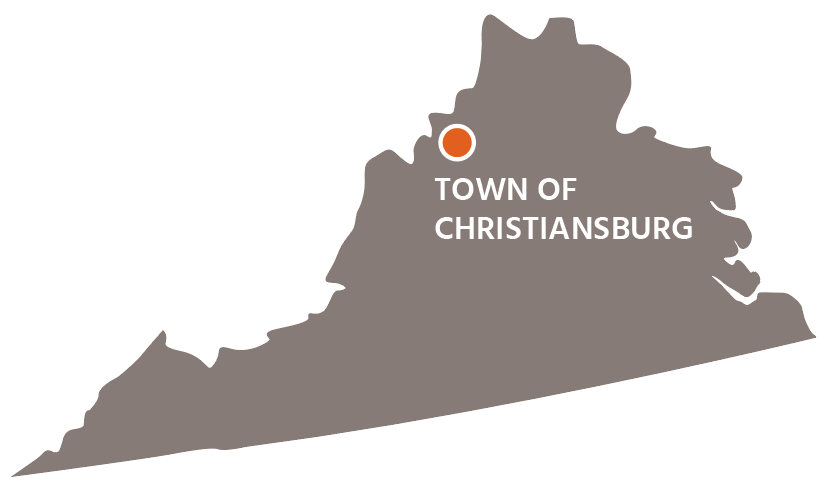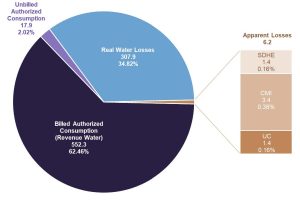
Town of Christiansburg
Water Loss Study
In 2022, the Town of Christiansburg conducted a water loss study after there were suspicions of significant water loss. The Town’s water distribution system serves about 22,000 residents, and the water is purchased from the New River Valley Water Authority (NRVWA), which also sells water to the Town of Blacksburg. McGill completed a water loss study, or a water audit, to help the Town of Christiansburg determine how much water was being lost due to system conditions and identify possible solutions.

The Challenge: The Town was Losing Water
The water loss study showed the Town was losing just over 35% of its water due to old infrastructure and metering challenges. The Town’s infrastructure is made of older, galvanized iron and cast-iron pipes, which are prone to leaks. Often times, these leaks occur in the same place, which creates high-leakage areas that need to be quickly replaced. Additionally, since many of the Town’s water meters are outdated, they are likely under-recording the actual water usage, which makes it difficult for the Town to recoup the cost of purchasing water from NRVWA through fees. These issues are challenging because they require expensive infrastructure improvements, but in order to save the Town money in the long term, they are necessary.
Our Solution: Evaluate Infrastructure and Provide Recommendations
To help the Town replace its aged infrastructure and improve its water costs, we evaluated several strategies for controlling the water loss. Our recommendations include:
- Establishing goals for the loss reduction
- Conducting acoustic leak detection
- Revising the policies for authorized and unbilled water use
- Conducting a study to align rates with operational and capital needs
- Developing a capital improvements plan to serve a roadmap for priorities
- Implementing satellite leak detection technology to help determine where significant leaks form outside areas that might not otherwise be visible
If the Town starts using zone master metering to divide the water distribution system into districts, it will be easier to track water loss zones and take applicable action. Following our suggested guidelines will allow the Town to better track water loss and prevent loss from occurring in the future, which will improve the system as a whole.
The Results: An Improved Water System
With this study, we suggested areas that the Town should critically examine as it works toward improvements. In implementing our recommendations, the Town will have a stronger, more resilient water system that can continue to provide water for residents and visitors for years to come. The study provides Town staff with evidence to present to Council, which will help staff identify capital improvement projects and obtain approval for implementation. The study also provides information the Town can use to obtain funding.
“Water loss studies are important for any community, particularly when there is evidence of actual loss, as was the case for Christiansburg. These studies help identify leaks and infrastructure problems and hopefully lead to solutions to reduce non-revenue water, improve water system efficiency, protect vital resources, and ultimately increase public trust. We were able to provide recommendations to the Town of Christiansburg that they intend to implement to meet those goals. This was our first project with the Town, and it gave us the opportunity to build relationships of trust with several of the Town staff. It was a pleasure for me to be involved in this project knowing the importance of water resources to the southwest Virginia area.”

Pie chart showing water loss in Christiansburg.
Innovation
Customization
Commitment